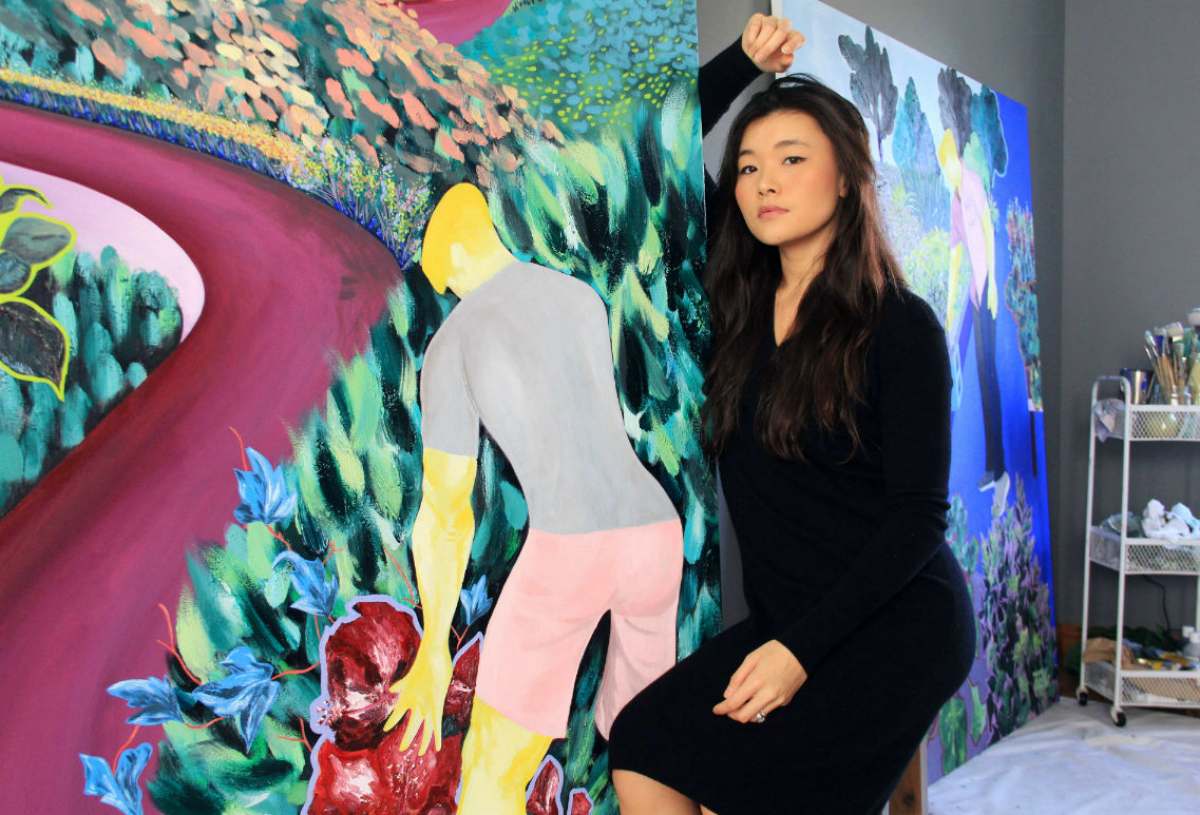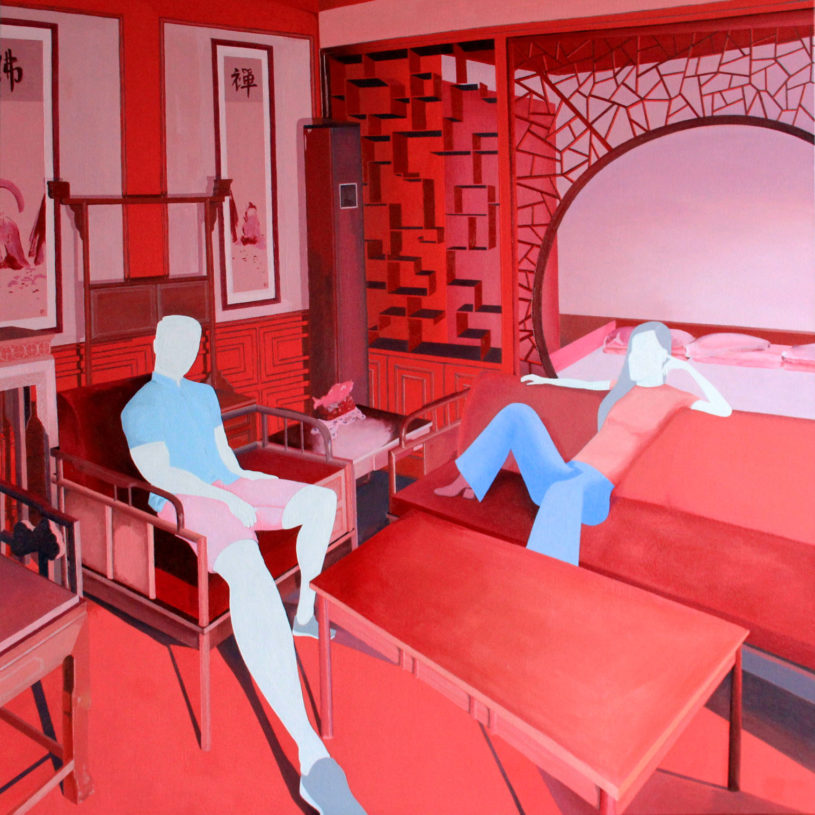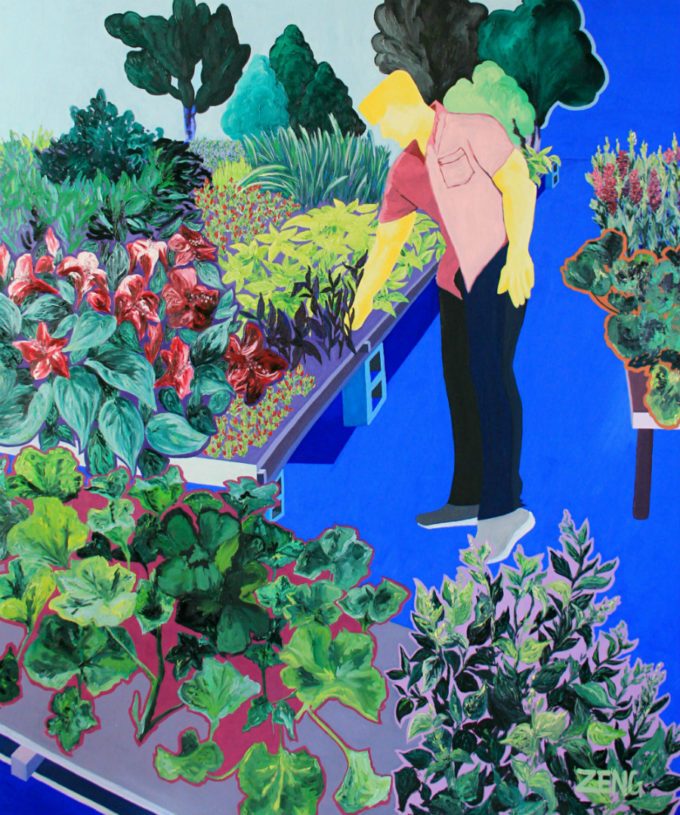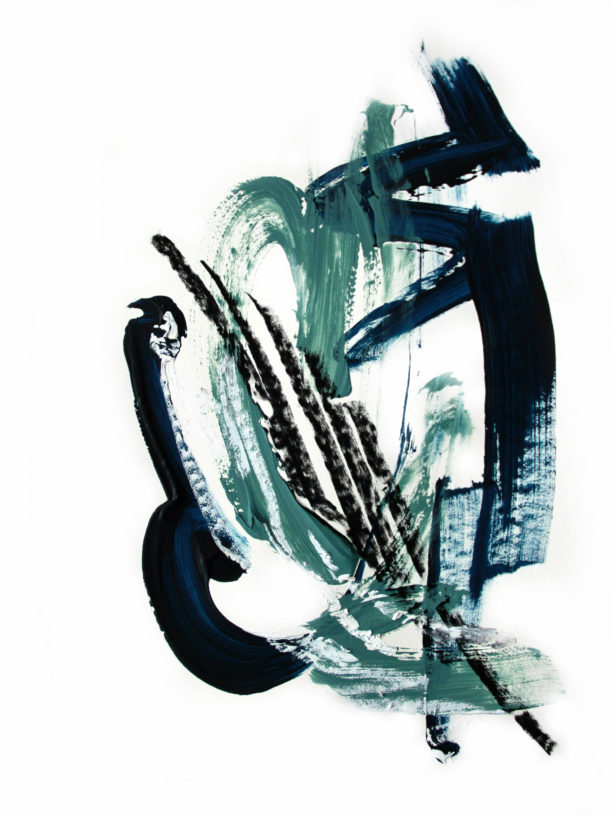The fine art of Diana Zeng’s business career
- July 31, 2019
- By Kurt Greenbaum
- 5 minute read

In early 2017, WashU Olin marketing alum Diana Zeng decided to launch the greatest rebranding campaign of her young career.
The product was Diana Zeng.
Until that January day, the “Diana Zeng brand” was about developing marketing strategies for startup organizations and nonprofits. By the end of the process, the brand was about a new career in the fine arts. The new Diana Zeng was all-in as a painter.
In between, she retooled the product and, for a time, even identified herself by a riff on her Chinese name—Zen She—to separate the “old” Diana from the new. She devoured biographies of fine artists and plunged herself into developing her studio practice so she could unleash the artist she knew had always been inside.
“I’d been working with startups since graduating. I saw that they often built something from nothing. That’s essentially what being an artist is: starting something from nothing,” said Zeng, BSBA 2014. “I took it seriously.”
The business of the arts
Two years in—with the confidence that she can support herself as an artist—Zeng is returning to Olin to speak to some of the first students in WashU Olin’s minor in the business of the arts. The genesis of the new business minor was a $1 million donation from Richard Ritholz, BSBA ’84, and his wife, Linda, inspired by their daughter’s experience as a fine arts student.
The new program targets students in the creative arts who want to make a career of their talent, but need to understand how to run their careers like a small business—complete with a grasp of marketing and branding, pricing, customer relationship management and finances.

Glenn MacDonald, John M. Olin Distinguished Professor of Economics and Strategy, will teach one of the foundational courses of the minor — “the business of art” — and invited Zeng to speak to his students on October 3.
Diana is an Olin graduate who used her business skills to fashion a visual art business that allows her to make the art she loves while paying the bills. She is an excellent example of the outcome we anticipate for the students who complete our class.
Glenn MacDonald
In some ways, Zeng is the mirror image of the students targeted for the business of the arts minor. Instead of an artist needing business acumen, she was a business student who had never met an artist or visited an art museum growing up. The closest she’d come as a child to making art was learning Chinese calligraphy and ink painting in Chinese school.
She had harbored an interest in art, however, and she took her father’s advice as an undergraduate: major in business, but use every elective to explore other interests. She took courses in queer theory, poetry and nature, and art classes at the Sam Fox School—enough, in fact, to earn a minor in fine art.
A day of reckoning

A year before Zeng’s graduation, while seriously involved with Sam Coster, the WashU 2012 grad she’d met in her freshman year, he was diagnosed with stage 4 Non-Hodgkins Lymphoma. A year of treatments forced the disease into remission—for a bit.
By the fall of 2016, the lymphoma had returned and, once again, been beaten back. Zeng and Coster had begun a New Year tradition, asking each other: If you had a year to live, what would you do?
By then, Zeng had held several marketing positions with St. Louis-area nonprofits and startups. The pair had married in October. A month later, the presidential election made them consider drastic changes. In January, as 2017 began, Coster asked Zeng: “If you had a year to live, what would you do?”
“I’d paint,” Zeng blurted out.
And thus began the process—outlined thoroughly on Zeng’s own website—that led her to remake her career and pursue her passion.
“The first year and the second year of my art career have looked drastically different. The first year wasn’t so much focused on making art. It was very difficult and very dark and it wasn’t great,” Zeng said. “The second year has really been about challenging myself and the creation of art. It’s been fulfilling in a really great way. It hasn’t been a very linear progression.”
Sharing the experience

Today, she’s grateful for the business background she gained and can draw a direct line from that experience to her early success as a professional painter, supporting herself in the fine arts. In fact, her first solo exhibition opens Aug. 23 at St. Louis’s Bonsack Gallery.
With that experience comes an appreciation for branding and marketing, for telling her story and finding an audience for that story. It also taught her how to value the work.
“The intrinsic value of my work is important. Understand the value of your work: I say that over and over again to artists,” Zeng said. She has benchmarked herself against other artists at her career stage—and those whose career trajectory she aspires to emulate. Assigning value—a sticker price—to her work is difficult, but necessary.
Under-price it and you cast doubt on whether the work has value. Overprice it and—well, you don’t make the rent. And yet, Zeng said, “It’s the hardest thing to let go of a piece of work and sell it. I genuinely love it and hate it. I want to keep all my work.”
Though hard, it’s not impossible, of course, and a business approach to her career is key. Zeng said artists must not shy away from viewing their work as a business or approaching art as a career.
“It does not interfere with the integrity of your work,” she said. “Connecting how art and business are aligned—I didn’t have that experience in school. This minor wasn’t available. It definitely would have made the possibility of going into art feel more feasible.”
Media inquiries
For assistance with media inquiries and to find faculty experts, please contact Washington University Marketing & Communications.
Monday–Friday, 8:30 to 5 p.m.
Sara Savat
Senior News Director, Business and Social Sciences
